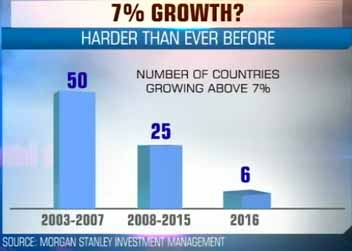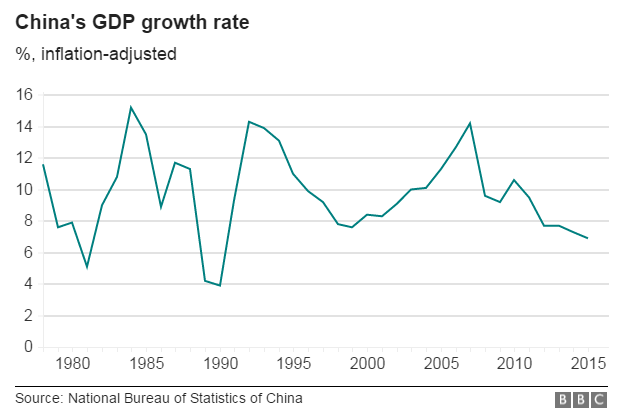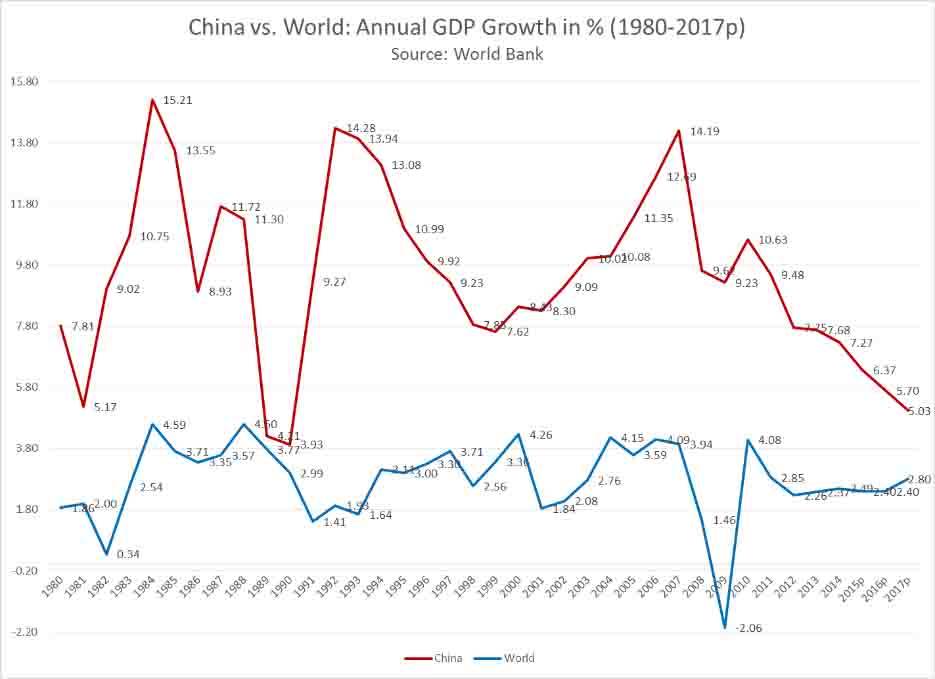Is there a next China? A lot of people will ask which country will be the “next China”? You’ll get a variety of responses and opinions, but as of now, it looks increasingly unlikely for any country to take off the way China did.
Many will say that current trends show several countries are taking off, but in my view, this is a premature judgment. Many economists were predicting the rise of Argentina or Brazil as major geopolitical powers considering their current economic growth. However, none of these events came to pass. Some were predicting the Philippines as being the next Japan. I highly doubt anyone is predicting such a thing anymore.
China’s rise was like a rocket. China’s GDP grew from 8–12% YOY (Year Over Year) from the 1990’s to 2008 and it continues growing at a fairly moderate pace even today. Many people wonder, which country is the next China?
Unfortunately, it is quite unlikely to have another country rising as quickly as China does due to a number of reasons. The primary reason being that the well-treaded path of export-based industrialization is quickly becoming obsolete.

Why is this you might ask? One single word- Automation
Automation is making it increasingly hard for less developed economies to grow through the traditional export-led economic basis, the usual way for a country to develop is for the country to leverage low-wage labor to develop a basis for the rest of the economy, however this method appears to be wearing out as automation spreading throughout the entire globe. One good example would be the IT industry, with programmable bots and software one could remove the need for human workers, and by some estimates, nearly 70% of the human workforce could be eliminated due to automation in certain economies.
“Ongoing reductions of headcount in outsourced businesses (due to automation) will eventually result in a scenario where (only) 30 percent of the workforce will remain relevant” – Research from Gartner Economics

The comparative advantage that poor countries can derive from having low standards/costs of living as well as having favorable currencies for exports is unlikely to continue into the future. The massive increase in industrial robots in manufacturing plants (record-setting highs in the past few years – China’s Robot Revolution May Affect the Global Economy) is making it increasingly hard for companies to justify moving their products to poorer countries. It looks as if the next wave of industrialization will not only be slower but also it will reduce less poverty than it used to do. The phenomenon where countries fail to produce large amounts of surplus using export-led industrialization is being observed across the world from South America to Southeast Asia. These countries simply aren’t rising as fast as they should.

Automation is likely to cause a lot of pain for developing countries, which will lose the surplus. Automation will likely force costly currency manipulation and even lower wages for developing countries to keep up. One can see this quite clearly with the phenomenon of the decreasing number of countries growing at 7% or higher. This trend is likely to continue as export-led industrialization is the only way to deliver a consistent and large-scale growth. The only other comparable methods are tourist attractions like Singapore or natural resource hubs like Saudi Arabia where the majority of growth is derived from oil or minerals. For countries with large populations that need growth, this could spell a big problem for them.
Is all hope lost? Not quite, it’s likely that these countries will remain fast growing at perhaps 4–6%, but the same prestigious rise that China had over the past 20 years is likely to be out of the scope for most developing countries due to automation, AI, and overall less favorable global environment. In the future, it is likely that the favorable global trends that allowed China to become China will have completely disappeared, when? No one knows, one thing is for certain – Automation will radically change how economies work in the world.

The writer is an amateur economist and a lover of history and geopolitics. He is a Kazakh Chinese from Xinjiang and Rinat currently writes extensively about China and geopolitics on Quora.

